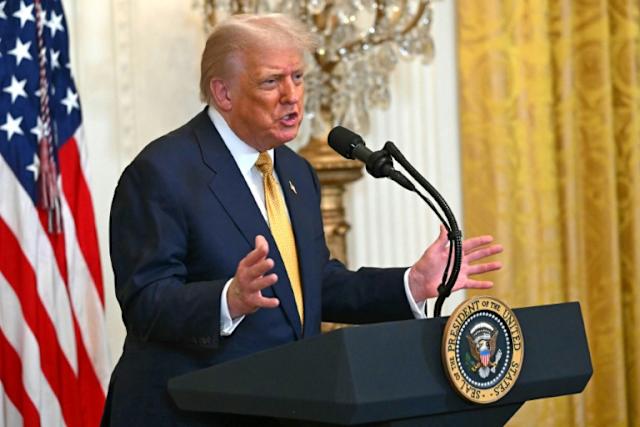U.S. President Donald Trump has hinted that the United States could deploy troops or launch air strikes in Nigeria to address what he described as the “killing of record numbers of Christians” in the West African nation.
Speaking to reporters aboard Air Force One on Sunday evening as he returned to Washington from his Florida residence, Trump said, “Could be. I mean, other things. I envisage a lot of things. They’re killing record numbers of Christians in Nigeria… We’re not going to allow that to happen.”
His remarks follow a weekend of strong statements from the White House over increasing religious violence in Nigeria. On Saturday, Trump warned that the U.S. could take military action if Nigeria’s government failed to crack down on the killings of Christians, which he termed a “tragic and unacceptable situation.”
The comment comes shortly after Washington reinstated Nigeria on its “Countries of Particular Concern” list — a designation for nations accused of severe violations of religious freedom. Other countries on the list include China, Myanmar, North Korea, Russia, and Pakistan.
The Nigerian government has not yet formally responded to Trump’s latest remarks, but officials previously insisted that any international assistance must “respect Nigeria’s sovereignty.” Security experts note that Nigeria has struggled for years with insurgencies by Islamist groups such as Boko Haram and the Islamic State West Africa Province (ISWAP), which have targeted both Christians and Muslims.
Analysts say Trump’s threat of military intervention could strain U.S.-Nigeria relations, particularly given the sensitivity surrounding foreign military presence in Africa.
While Washington maintains security cooperation with Abuja, including intelligence sharing and arms sales, a direct U.S. deployment would mark a major escalation in U.S. involvement in African conflicts.
As concerns mount over religious tensions and human rights abuses, the global community continues to call for peace and accountability in Nigeria’s volatile northern and central regions.

